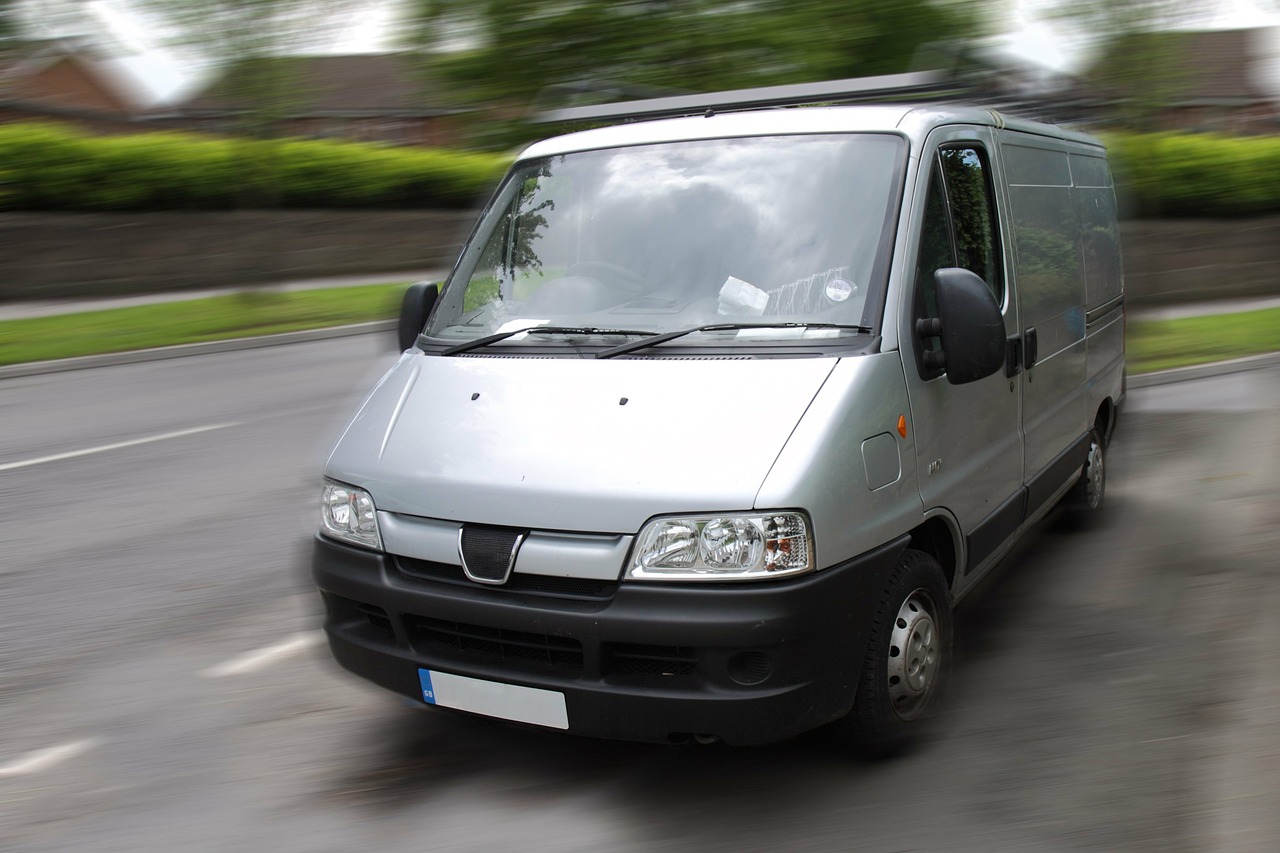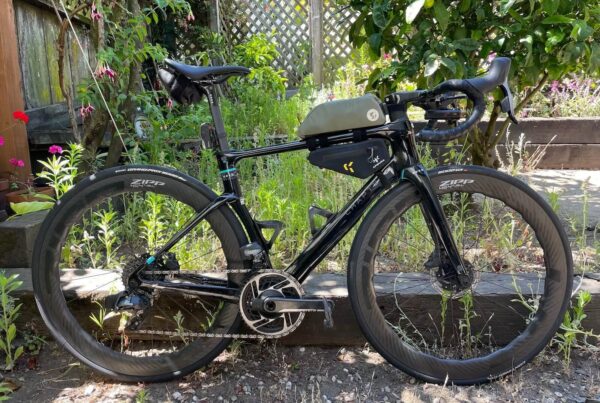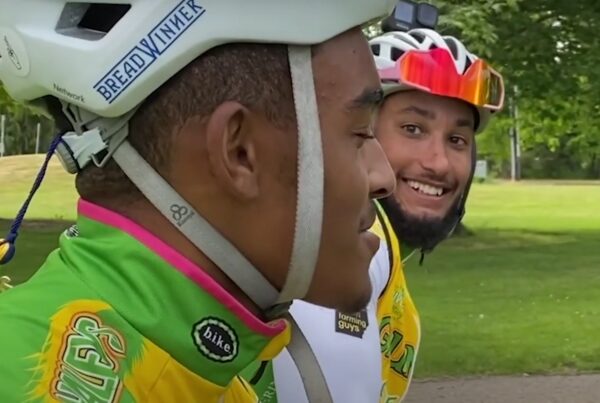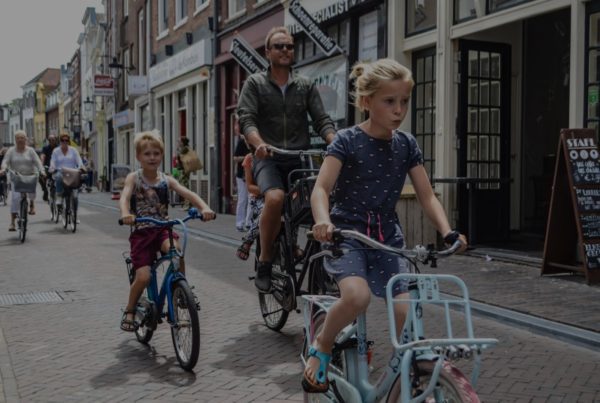I’ve been car-free since 2002, when a teen driver slammed her daddy’s SUV into the back of my car, while I was stopped at a red light (The first words she said when she got out of her ute were “I’m such a bad driver, this is the second time I’ve done this.” The second words she said: “Oh my God, you’re bleeding!”). I guess she didn’t see the red light. Or me. Or the line of cars in front of me.
Or maybe she wasn’t paying attention.
I didn’t plan on going car-free, but it worked out that way, and now it’s by choice. Sure, I’ve occasionally thought about getting a car, but when I add up the costs, I change my mind. But looking back, it’s hard to believe that it’s been so long since I last owned a car.
Anyway, I recently joined Zipcar. A friend needed a ride to an appointment that was two and a half hours away by bus, and while she doesn’t have a driver’s license, I still do (although I don’t own a car, I have driven occasionally over the past twelve years).
So I signed up for Zipcar, and there I was, behind the wheel again, driving my friend to her appointment. After dropping her off, I returned to Portland, and then later in the day, drove back to pick her up again. On the way, I noticed a cyclist riding in the bike lane. And it occurred to me as I was passing him, that it didn’t take any special effort at all to see him. I wasn’t intently looking for cyclists, I was just driving. And there he was, easy to see—all I had to do was pay a reasonable amount of attention to my driving, and I saw him.
I soon came to a stop light, stopped, and waited with everybody else. And while I was waiting, he must have passed me, because when I started up again, there he was ahead of me again. And once again, I hadn’t been making a special effort to “see” cyclists. I was just driving, paying a reasonable amount of attention, and there he was ahead of me, unexpected, but easy to see.
Amazing, isn’t it? Without making any special effort to look for cyclists, I nevertheless saw a cyclist ahead of me on the road. I was thinking about this on the drive to pick up my friend, because so many drivers who hit cyclists say “I didn’t see him,” or “He came out of nowhere,” or “He suddenly swerved into my path.” What they are really saying is “I wasn’t paying attention” or “I took unreasonable risks with the cyclist’s life, and he paid for it.” But they don’t want to say that, even quietly to themselves, because that would mean acknowledging that they are responsible for what happened to the cyclist. So they say the magic words “I didn’t see him,” and the rest of society, thinking “There but for the grace of God go I,” gives the driver a free pass.
I continued on my way, picked up my friend, and returned to Portland without incident.
And then, shortly after, San Mateo County District Attorney Steve Wagstaffe announced that there would be no charges against the driver who killed Joy Covey. Covey, best known as the CFO of Amazon at the time of its initial public offering, was killed on September 18, 2013, whena delivery van made a left turn, directly into her path, while she was riding downhill on Skyline Boulevard in rural San Mateo county.
The California Highway Patrol handled the investigation, and submitted its Accident investigation to the D.A.’s office in November. In February, the District Attorney’s office concluded that “there is insufficient evidence to establish negligence by the driver.” In a memo to the Highway Patrol, prosecutor Joe Cannon wrote that
the van driver was neither distracted nor intoxicated. Mr. Cannon cites a witness who describes the area as dappled with light and shadow at the time, a condition that the witness said makes seeing a bicyclist difficult.
Mr. Cannon also cites a witness who said that it appeared that Ms. Covey and the driver did not see each other. These findings would “prevent” a jury from finding negligence beyond a reasonable doubt, the standard of proof in such a case, Mr. Cannon says.
So the van driver didn’t see the cyclist. Because it’s so hard to see a cyclist at 1:30 in the afternoon. Especially if you’re not paying attention. Or if you see the cyclist but think you can beat her to the intersection. Or if you think that you have the right of way and the cyclist is supposed to stop. But none of those common circumstances are alleged. No, the driver just didn’t see a cyclist who was right in front of him at 1:30 in the afternoon.
Ah, the special, consequence-free world of the American driver, where “the driving privilege” has mutated into “the privileged driver,” and “I didn’t see him” is virtually guaranteed to be a Get Out of Jail Free card.
So charges will not be brought against the driver.
But, apologists for doing nothing will point out, the dead cyclist will find justice in our civil courts.
No she won’t.
In any collision, the driver’s insurance policy will only pay out, at best, the maximum of the policy. And many drivers on the road are underinsured, which means they are only carrying the minimum amount of insurance required by state law—an amount that is usually quickly consumed in the minutes immediately following a collision. These underinsured drivers are also virtually certain to have no assets worth pursuing (as an example, the driver who killed Joy Covey is a 22 year old delivery driver, and likely to have no assets to his name).
And of course, some drivers—often some of the worst drivers on the road—are uninsured.
The bottom line: when an underinsured or uninsured driver hits a cyclist, the victims have almost no chance of being fully compensated by the driver for the damage done (This is why Bob always advises cyclists to purchase the maximum UM/UIM coverage on their own insurance policies). People who dream of million-dollar verdicts against an irresponsible driver with little or no insurance are doing just that—dreaming. It’s not gonna happen.
And even if the driver is fully insured and the cyclist is fairly compensated, it doesn’t come out of the driver’s pocket. It comes out of the insurer’s pocket. Sure, the driver’s rates will probably go up, but the driver doesn’t really pay any penalty, criminal or civil. Taking a life on American roads is usually consequence-free—at least for the careless driver.
But the driver who killed Joy Covey was driving a delivery van, and that is an entirely different situation, because commercial vehicles typically carry large insurance policies.
But it still doesn’t matter. Joy Covey, or rather, her 8-year old son, will not receive justice.
You see, when Joy Covey left Amazon, she had a net worth of $200 million. Her 8-year old son doesn’t need the insurance money, even if it is a $1 million policy. He needs his mother. But she was taken from him because a driver “didn’t see her.” So when people say it doesn’t matter if careless drivers aren’t charged when they break the law and take a life, they’re kidding themselves.
It does matter.
Ask any of the victims of careless drivers if they’d rather have whatever pittance they got from the insurance company, or their life back. Ask Joy Covey’s son if he needs the money, or his mom. Ask any 8-year old if he needs his mom, or the money. Apologists for careless drivers say that more serious penalties won’t bring the dead back to life. But neither will money. And while holding drivers accountable for their carelessness won’t bring back the dead or heal the injured, it will serve notice on all drivers that “I didn’t see her” just doesn’t cut it any more.






Without in any way exonerating motorists who don’t pay attention, it may be that what is needed is more than just that they look harder.
They need to be shown, taught, encouraged, made, to look differently: to look *for* cyclists. It needs to be made clear that along with the vehicles they think they are looking for – big ones they can’t miss, ones that look like theirs and ones with two wheels that go vroom, are slim, people-sized vehicles that don’t look shiny or make any noise, and that may go quite slowly, or quite fast.
I believe this applies to all road users. Motorists killing motorists and peds all have little consequences. Story after story I hear of motorists without even a license injuring people without even getting a ticket. A chief from CHP recently told me that we are one step from complete anarchy on the highways. People have become indifferent and have come to accept the risk of driving. SAD.
I appreciate your concern for bikers in high-traffic areas, but your comments are certainly biased towards bikers and against cars, if not wholly one-sided. Vehicle drivers are not the only ones who hurry or do not pay attention when on the road; I’ve witnessed bikers taking chances, making illegal turns, and not paying close attention to their surroundings. I think your opinion would carry much more weight if it were more objective about the subject. I’m sure that you are passionate about biking/walking/other alternatives to cars, but try to consider everyone involved, including drivers. I have been in a few situations where during the day time, and in some cases more so during sunny days, light and shadow make it difficult to see a bicyclist, pedestrian, or even a small to mid-sized car.
I wonder if we cyclists “see” other cyclists because they look like us. I too never fail to see a cyclist.
It seems to me, the psychology of drivers is to watch primarily for potential threats to themselves. So, for instance, I think it’s safe to assume a driver will watch out for large trucks, other cars, walls and barriers, even large potholes.
But it doesn’t seem to be true that drivers have the same motivation to look out for pedestrians and cyclists, i.e. they don’t acknowledge the threat cars may pose to others.
We engineer roads in a conscious effort to keep traffic patterns orderly and safe. It keeps the traffic patterns homogeneous, and has the side effect of removing cognitive load on the driver. But it also means for many, long periods of time are spent driving on freeways without needing to watch out for less predictable dangers like cyclists and pedestrians. Not surprising that drivers complain about the unpredictable risks in cities and in rural areas, and try to deflect the blame onto the risks rather than claiming responsibility for their own inattentiveness?
I long ago figured out that car drivers would almost never be held to account, simply by claiming they did not see me, a pedestrian and bike rider. I walk and ride cautiously, assertively, and with lots of blinking lights and reflectors at night. Still, I don’t kid myself that an inattentive driver will take care of me. Until we change the application of the law and our culture of making excuses for drivers, we won’t be safe. This is going to be a long fight, possibly 50 years.